On February 6, 2021, the CUPE NB Executive published in all NB dailies an open letter sent to Premier Higgs days before. This letter is a cry from the heart, from frontline workers. Below the PDF reader, you can find the full text of the letter.
 Loading...
Loading...
Premier Higgs, it’s Time to Listen to the Front-Line Workers
Dear Premier Higgs,
We, the front-line workers of New Brunswick, write to you today because we need you to hear us. Public employees have been pouring their hearts into keeping our province running during this pandemic. In every sector, members are performing miracles with the few resources they have, despite being already stretched thin, overburdened, and understaffed.
We are proud New Brunswickers, and we know the value of hard work. But we are feeling increasingly abandoned by your government.
This feeling of being taken for granted began way before the pandemic, before you even took power, Mr. Higgs. But you have been in the drivers’ seat for more than 2 years. When you began your minority government in 2018, we took every chance we had to offer collaboration and bring constructive solutions. Early on, unions flagged to your officials the ongoing major recruitment and retention crisis happening in most sectors. This problem extends beyond healthcare, social services and community care. CUPE locals raised the alarm to you and previous Premiers on how there were more retirements than new full-time position posted. All said “OK, we will look into that,” and then nothing was done.
When you took over from Brian Gallant, we wrote you letters and asked for meetings to explain to you how care staff wages were among the lowest in the country. We showed your Ministers how this resulted in dangerously understaffed nursing homes and hospitals. Yet, nothing has changed since.
In fact, your government spent a record amount of public funds (over $350 000, as revealed by Radio-Canada in December 2020) in legal fees just to deny workers’ bargaining rights, rather than negotiating a fair wage increase for nursing home staff. How was this “necessary”, when you know our province has the lowest median family incomes in all of Canada?
Many municipal workers’ locals and the members of Local 1190 (General Labour and Trades) showed you ways to save money by bringing work in-house, instead of contracting out work like road paving and painting, garbage collection and street sign making. Unfortunately, there seems to be no rush from cities and departments to stop handing over cash to out-of-province private companies rather than contracting-in work.
We are proud of the work we do, and we want our province to grow and run well. But when we raise issues and bring solutions, we are distressed by the absence of leadership in upper management and department heads. The input of people actually doing the work should not be ignored.
Where is the leadership to honour the deal signed in 2020 between over 500 NB Liquor workers and ANBL’s management? What have liquor store employees done to deserve this, when they have been working all out, delivering record sales? What happened to the principle of “A deal is a deal”?
The services residents rely on work because we do. Yet, time and time again, our attempts to bring goodwill and cooperation are met with snubs, hindrances, and disrespect.
This month, a national study proved to all how your government has allocated the least resources and support to the front lines, on all metrics. Out of every 100 dollars spent in NB, $99 has come from the federal government. In fact, you even left millions of federal dollars on the table instead of helping. There is no mystery why on January 20, economist Richard Saillant wrote in the Brunswick News dailies: “Government should recognize that it does have the fiscal flexibility to respond much better to the crisis.”
This one fact alone, Mr. Premier, captures the essence of what is wrong here : Before Christmas, when we were out there giving our 110% when that second COVID-19 wave hit, you told all public sector workers that they should all take “zeros”, a wage freeze. That’s not how you build trust with those you call “front-line heroes”.
Your decisions as Premier go against the national consensus on the economic recovery and against what we feel is best for ordinary New Brunswickers. To recover from the pandemic, we need public investments in all sectors, not more austerity policies. Failing to do so will bring us decades backwards. The last time austerity was imposed after a much smaller crisis, that hard rule of “doing more with less” got our province down a 13-year-long economic stagnation.
Mr. Premier, we know you have the power to invest in the public sector, in front-line workers. If you share our desire to see our province grow and prosper, it requires openness and cooperation on the government’s end too. Do what’s right: act to make a positive difference for workers and their families.
Sincerely,
The CUPE NB Executive
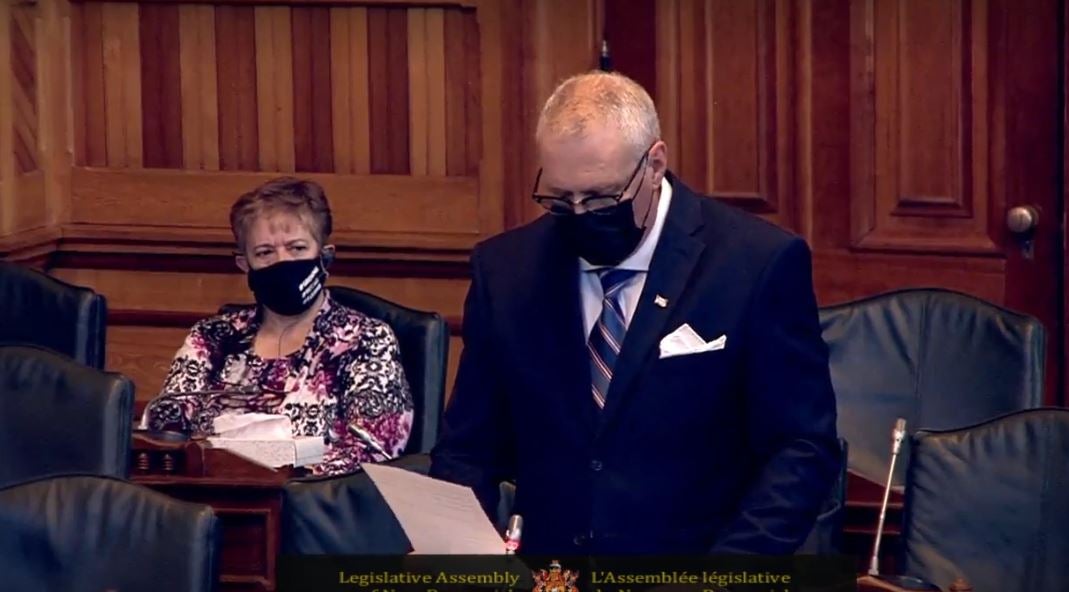

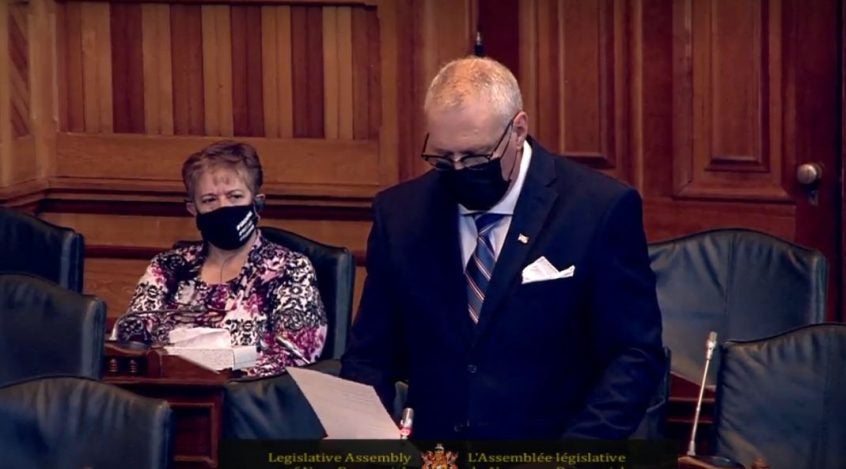

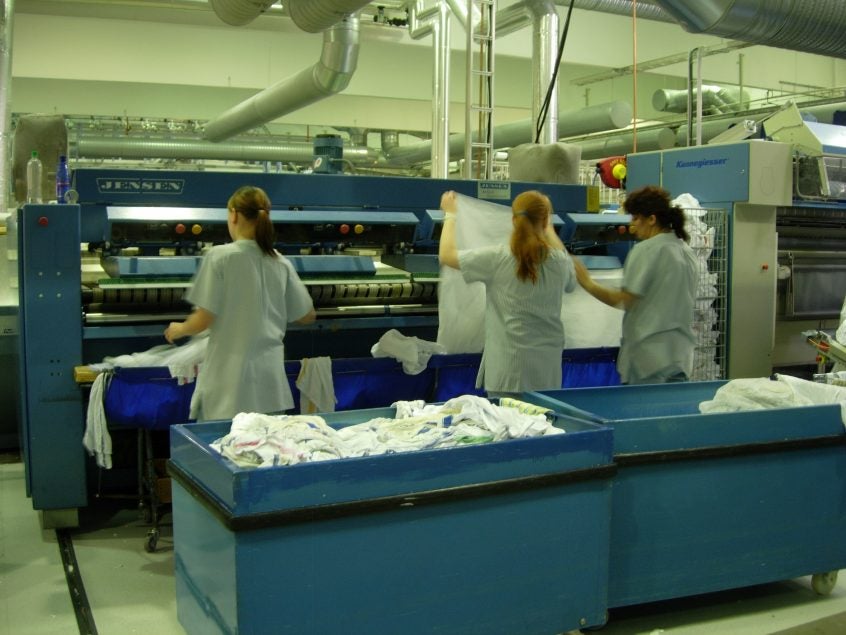
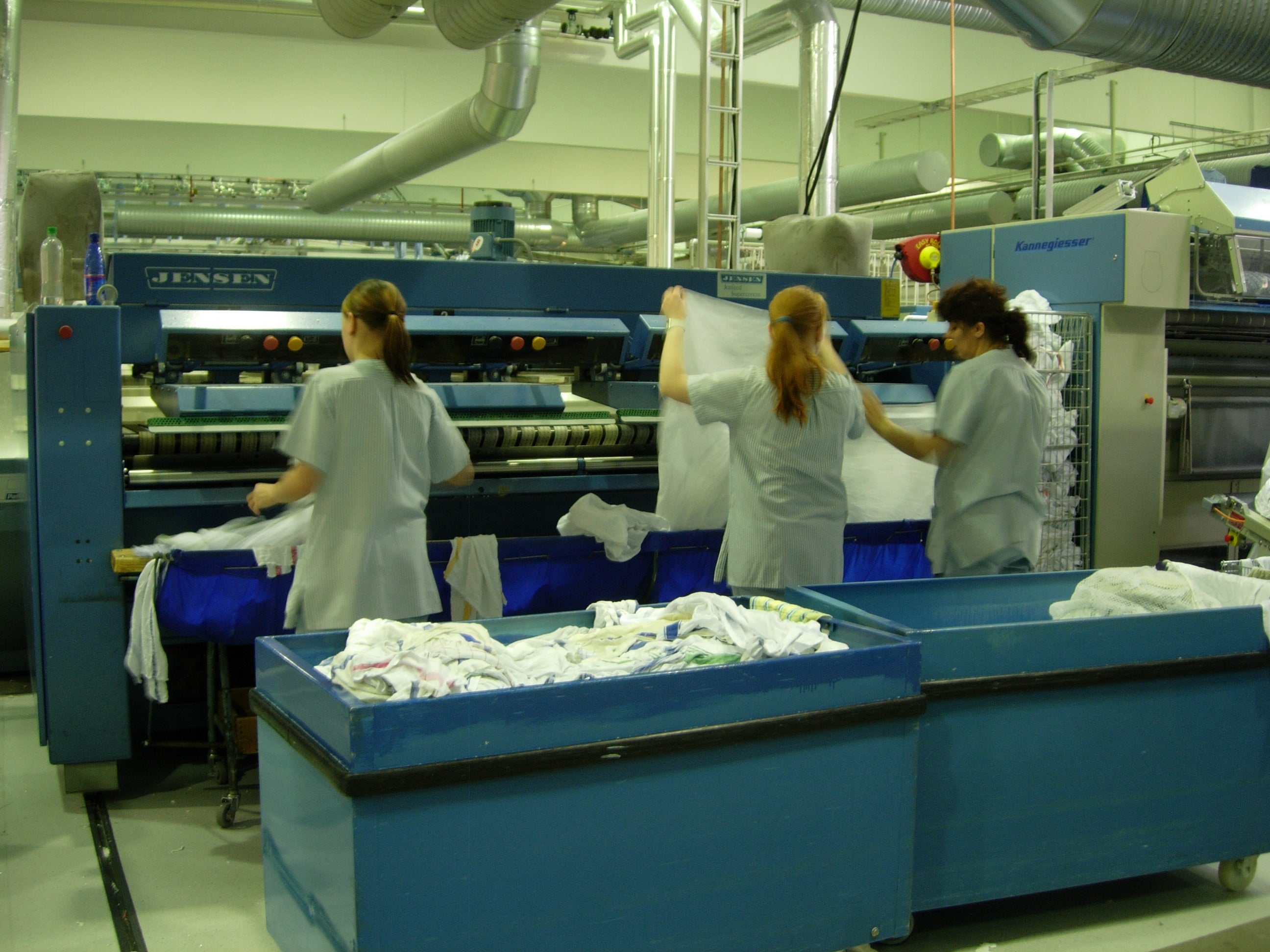


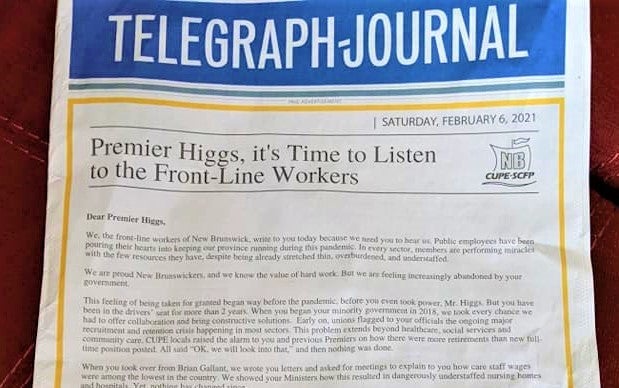

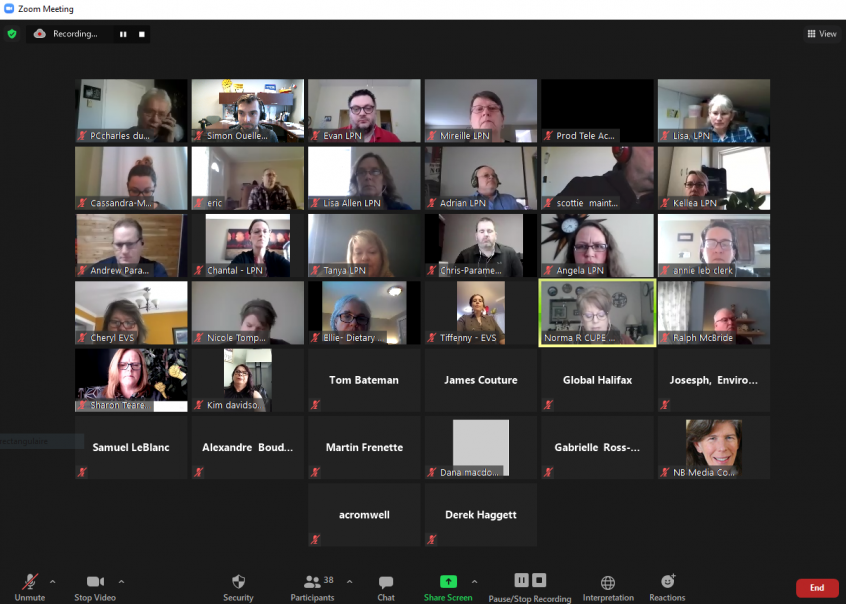
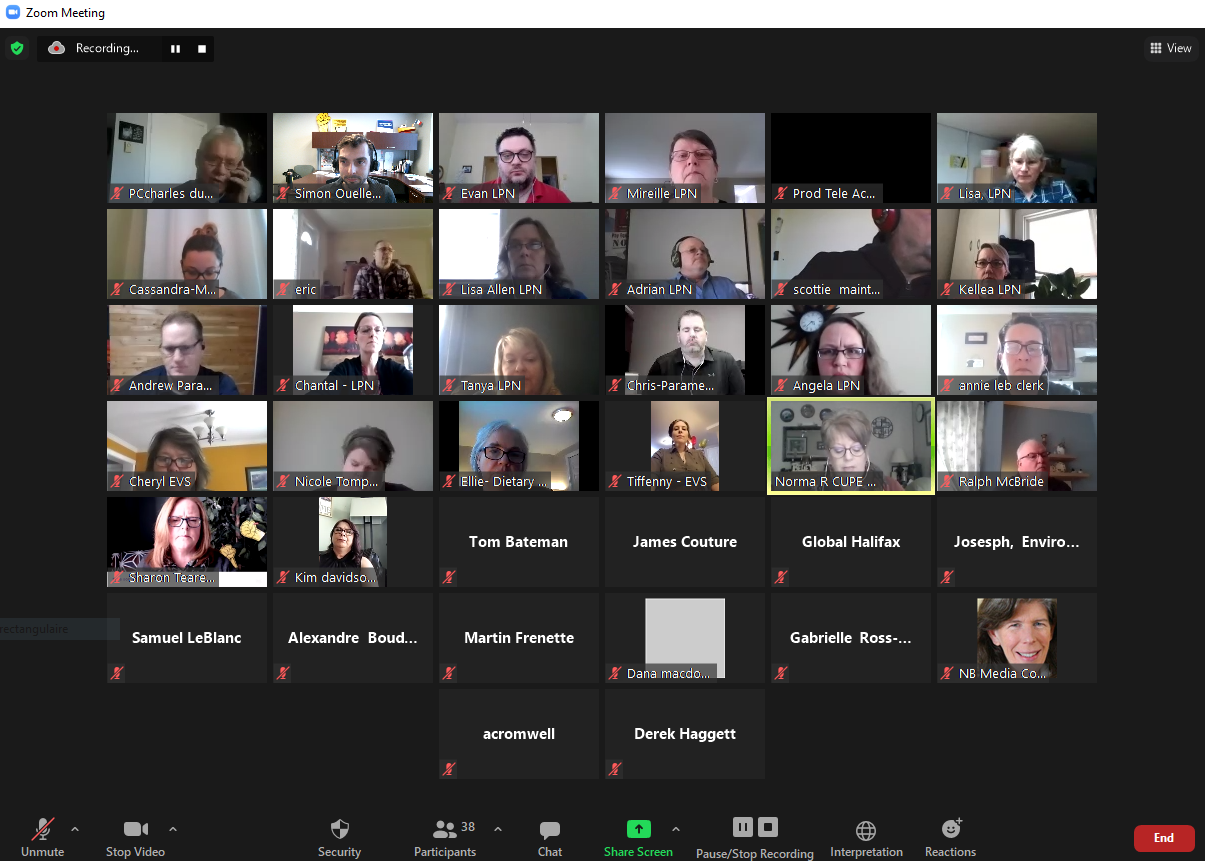

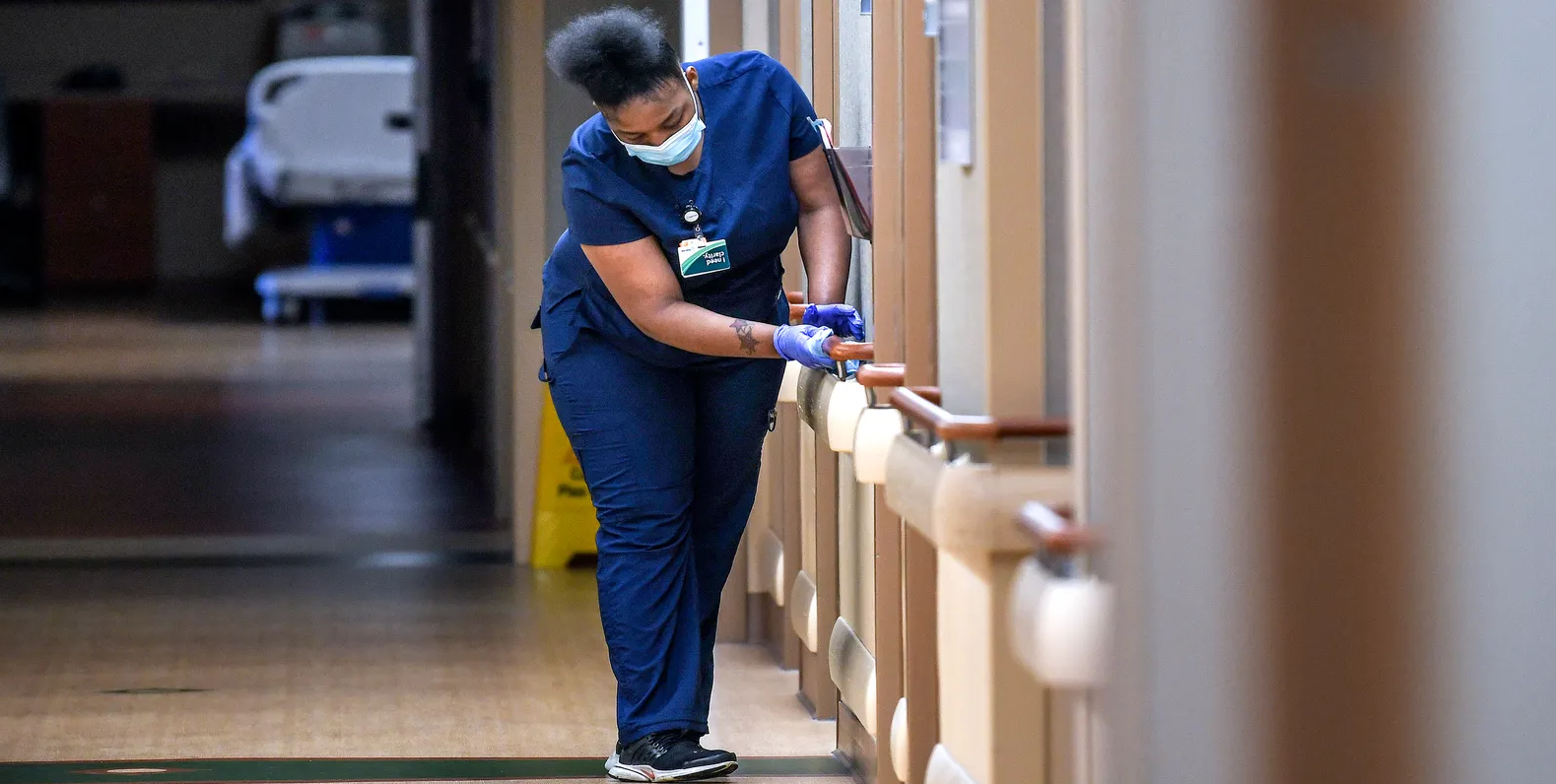


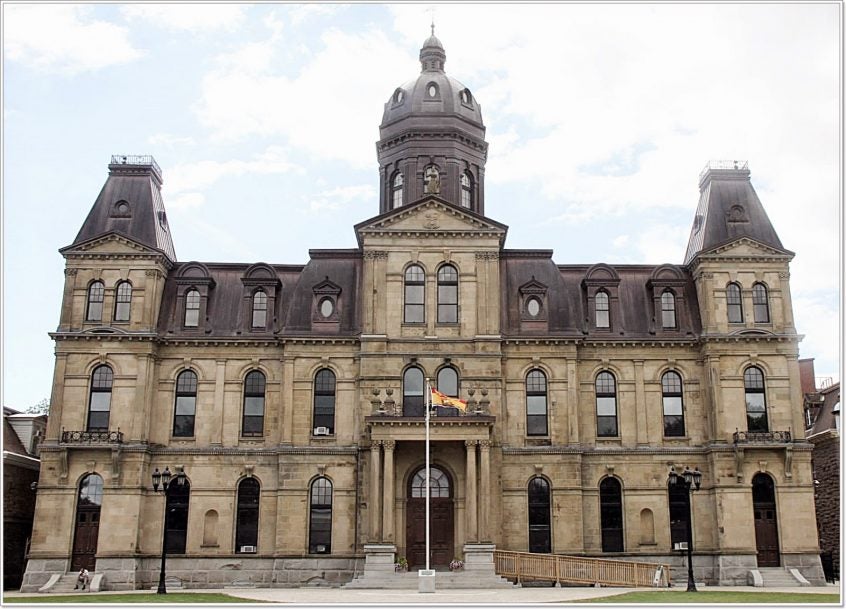
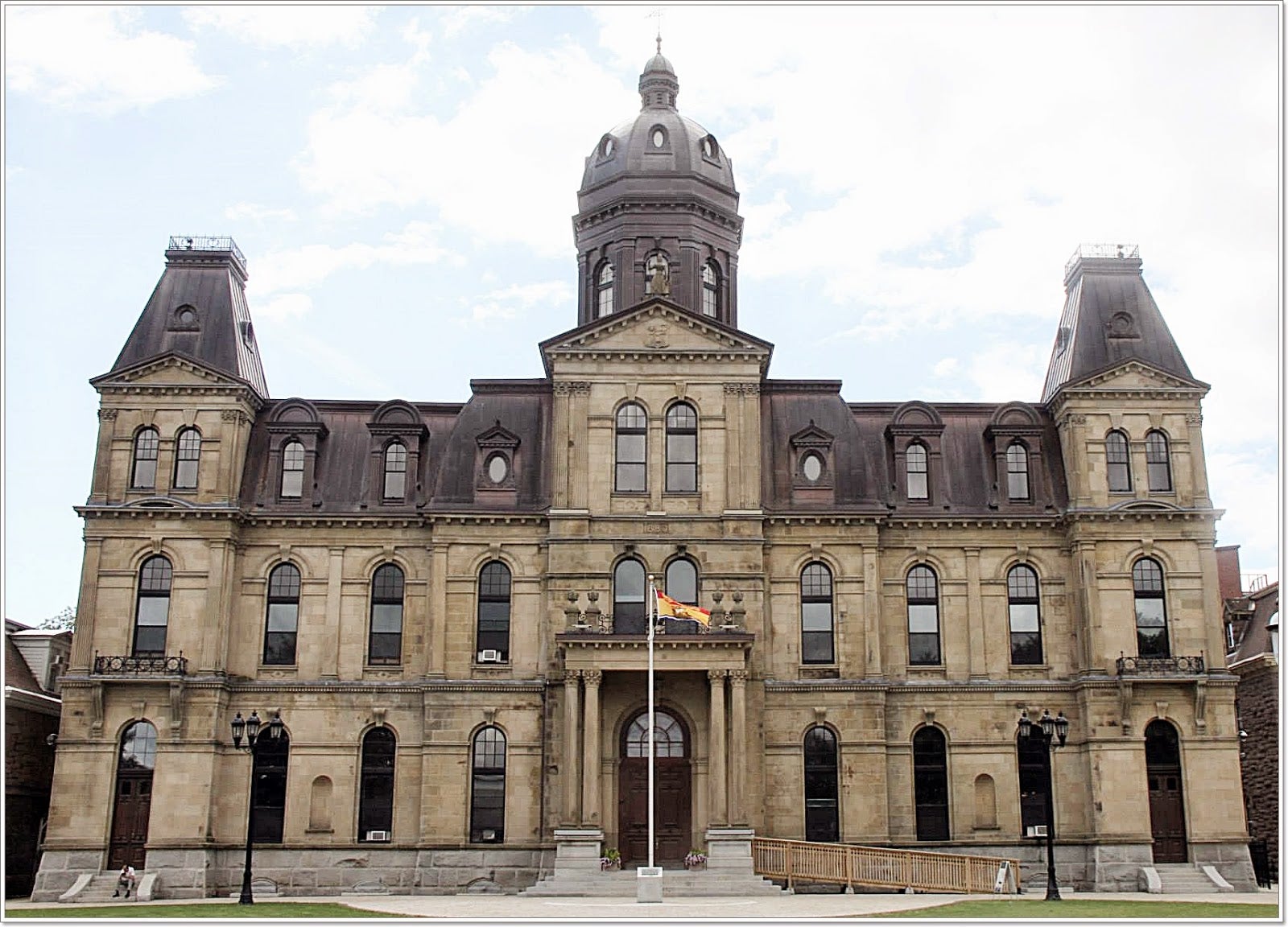
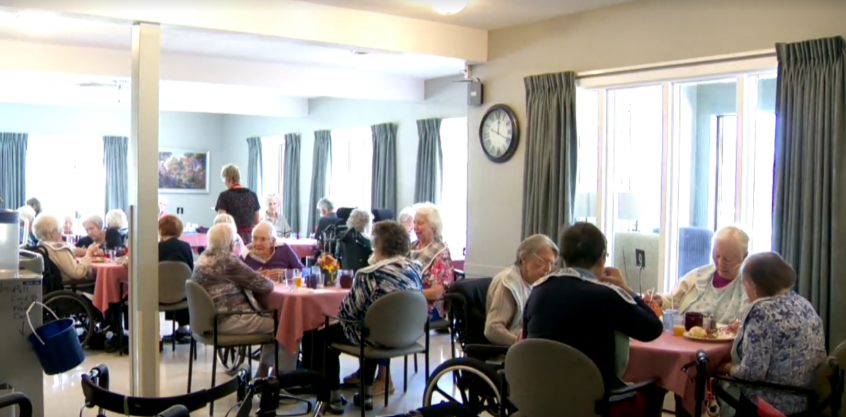
 Establishing standards is the best way to ensure all seniors, no matter where they may be or no matter their income, have a basic right to live in dignity,” said Brien Watson, president of CUPE NB. “There is a recruitment and retention crisis unfolding in the sector at the same time as we deal with a pandemic. Why can’t our Premier work with other provinces and Ottawa to raise the bar for everyone?” asked Watson.
Establishing standards is the best way to ensure all seniors, no matter where they may be or no matter their income, have a basic right to live in dignity,” said Brien Watson, president of CUPE NB. “There is a recruitment and retention crisis unfolding in the sector at the same time as we deal with a pandemic. Why can’t our Premier work with other provinces and Ottawa to raise the bar for everyone?” asked Watson.